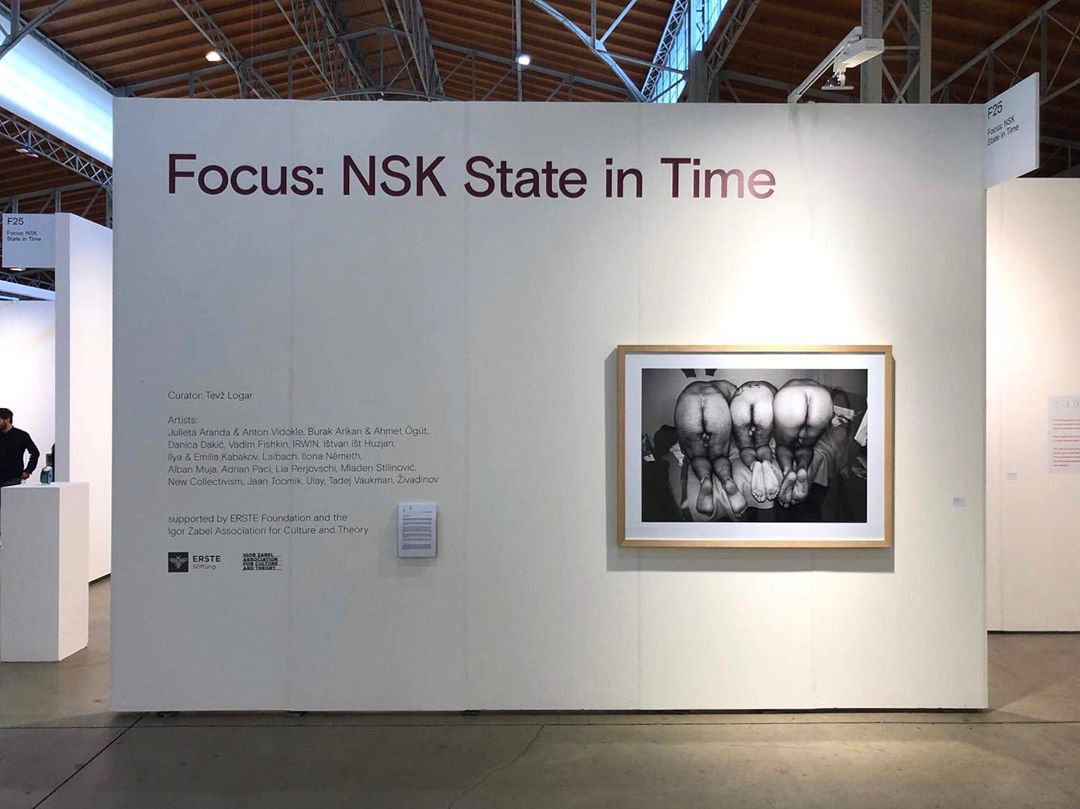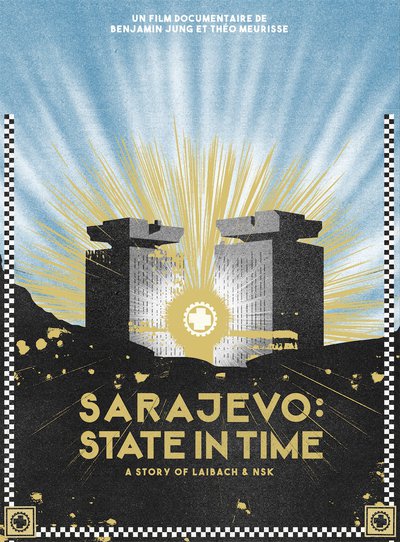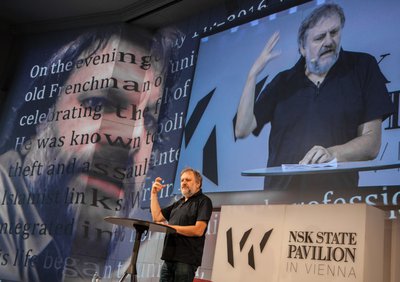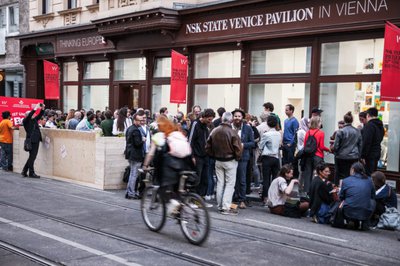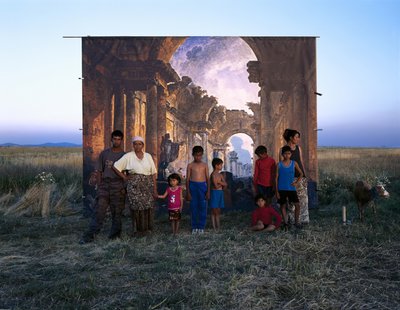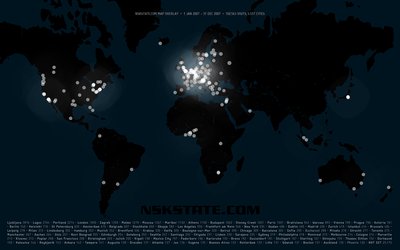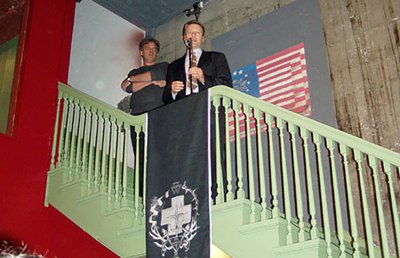In keeping with the interest of viennacontemporary in ongoing research within the CEE region, this year’s Focus section will not revolve around the invited guest country, but will rather concentrate on the question: What is the experience of a state that is not based on territory, but on time? Based on the phenomenon “NSK State in Time”, the presentation tries to challenge the idea that art has to be represented in the realm of a nation-state.
Living in the time of destructive declaration of nationalism, fascism, and xenophobia, the question of traversing territorial borders, as introduced through the idea of “NSK State in Time”, is probably equally relevant today as it was in the time of its formation, a few years after the fall of the Berlin Wall. In their work, the invited artists tackle questions of the human condition, social relations, and exchange – the same questions that were part of the core idea and interest when the concept of “State in Time” was born in 1992. One of the State’s foundational texts, “The Institutionalization of Friendship” by Viktor Misiano, proposes friendship and informal networks as the most direct type of social communication, not established through formalized procedures, but through the rhythm discovered by the participants when they listen to each other.
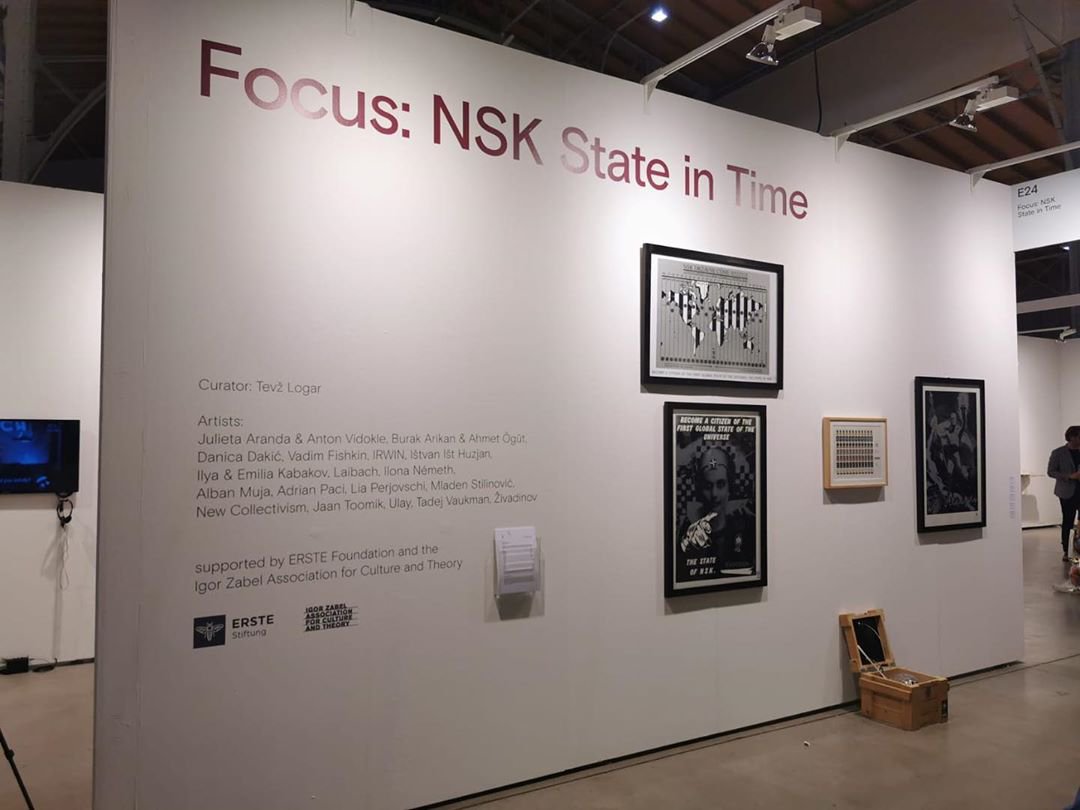
Based on this idea, the Focus presentation revolves around artistic practices that propose resistance against the idea of territorial boundaries and subsequently expand the spectators’ awareness and critical thinking on topics such as memory and existing geopolitical paradigms. The gaze of so-called ‘engaged’ artistic practices always focuses on the ‘otherness’ of the image of dominant ideologies, thereby opening up the possibility for the necessary critical reflection of society. This ‘other’ gaze definitely exists in the context of the invited artists.
The complexity of the works that correspond with each other, confronts the viewer with various questions that are inherent in our social reality, but also convey the artist’s firm position, which is never indifferent but always demonstrates a strong declaration on a particular socio-political issue – this, too, symbolically represents the values and ideas introduced through the idea of the State in Time at the time of its creation.
Focus: NSK State in Time | Curator: Tevž Logar | Booth: E24 | F25
In the 1980s, the Slovenian visual arts scene within Yugoslavia began to open up and new phenomena began to emerge. Part of this trend and one of the engines driving new artistic paradigms was the Neue Slowenische Kunst (NSK) movement, which was established in 1984 by the groups Laibach, IRWIN, and Scipion Nasice Sisters Theatre. The cooperation between the groups in the NSK movement resulted in projects with complex and conceptual media structures, openly flirting with the historical avant-gardes of the 20th century, while revealing a new understanding of art and society of the time. The projects of the NSK movement have become famous examples of a ‘Gesamtkunstwerk’, where theatre, music, visual arts, literature, and design meet.
A transformation of the movement, or rather the next level, was the formation of the NSK State in Time in 1992 in response to the political shifts and radical changes in Yugoslavia and Eastern Europe. It was created as a conceptual art project by the groups comprising the Slovene collective Neue Slowenische Kunst (NSK). Amongst others, these included the groups IRWIN, Laibach, Cosmokinetical Cabinet Noordung, New Collectivism, and the Department of Pure and Applied Philosophy. Although it does not offer any permanent territory, the »State in Time« is now the virtual home of over 15,000 citizens worldwide, including many artists. The state issues passports and provides citizens with rights of participation, inviting open-ended actions to formulate their self-constitution, currency, education systems, religion, production of folk culture, and other state functions.
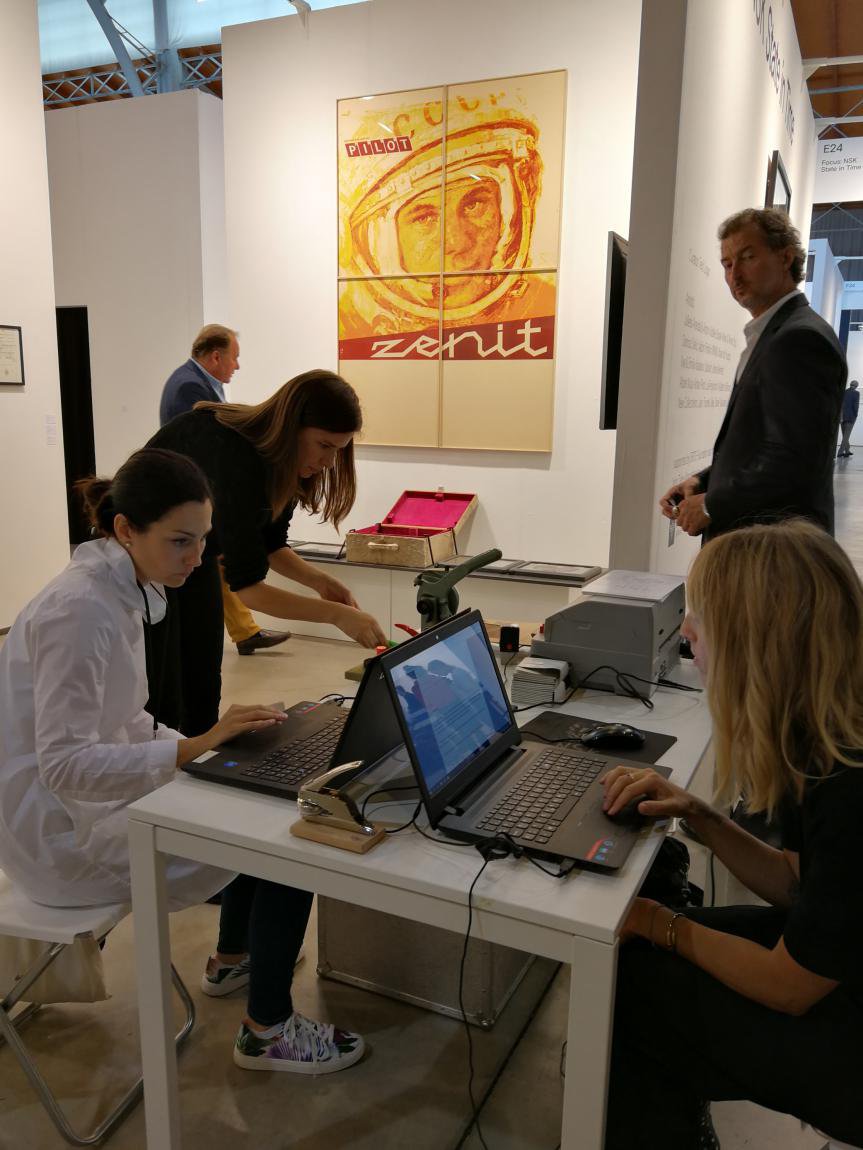
The artists exhibited include: Julieta Aranda & Anton Vidokle, Burak Arikan & Ahmet Ögüt, Ilya & Emilia Kabakov, Danica Dakić, Vadim Fishkin, IRWIN, Ištvan Išt Huzjan, Laibach, Ilona Németh, Alban Muja, Adrian Paci, Lia Perjovschi, Mladen Stilinović, New Collectivism, Jaan Toomik, Ulay, Tadej Vaukman and Živadinov Dragan.
